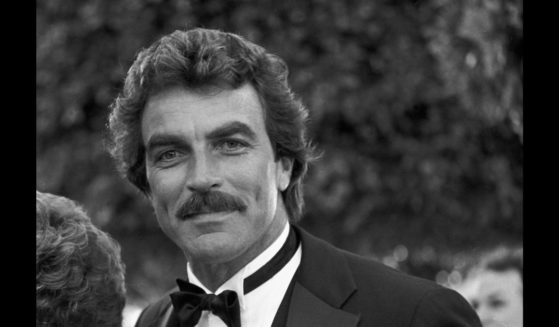Evidence Raises Possibility Comey Lied About Steele Dossier's Role in Trump Probe
When it comes to the FBI’s investigation of Russian “collusion” with the Donald Trump presidential campaign, timing is everything.
Former FBI Director James Comey has said the probe’s origins had nothing to do with the now-debunked “dossier” compiled by former British intelligence agent Christopher Steele, and that the investigation had started before the FBI even received Steele’s work of maliciously imaginative fiction.
But now, according to The Washington Times, evidence coming into focus suggests the FBI knew about the allegations in Steele’s document before the investigation got started — and Comey might not be telling the whole truth.
Most Americans first heard of the dossier when it was published by the BuzzFeed website in January 2017, just before then-President-elect Trump’s inauguration.
Its lurid tales alleging Trump had engaged prostitutes while visiting Moscow made it like catnip for the anti-Trump “resistance.” However, the report of the special counsel investigation it helped to spark showed that virtually none of the Steele report had any validity.
The bureau’s official story is, as The New York Times reported in December 2017, that the investigation of Trump officially started July 31, 2016, after the FBI learned that Trump campaign associate George Papadopoulos had told an Australian diplomat during a night of drinking that the Trump campaign had learned the Russian government had “thousands” of stolen emails that would embarrass the Hillary Clinton campaign.
The bureau ostensibly did not have the Steele dossier until mid-August of 2016.
That difference in timing might not sound like much, but it’s big. In an August 2018 interview with ABC’s George Stephanopoulos, Comey was asked directly whether the Steele dossier had any bearing on the investigation’s beginning.
Comey denied it outright.
“The information that triggered it was the Papadopoulos information that came in late July,” Comey said. “The FBI didn’t get any information that’s part of the so-called Steele dossier, as I understand it, until after that. And so the investigation was triggered entirely separately from the Steele dossier.”
But as The Washington Times reported on Sunday, that might not be the whole story. Maybe the entire dossier wasn’t in the FBI’s hands until the investigation started, but it sounds like information from it was available to the bureau earlier — and the former director might have been taking some liberties with the truth.
According to The Times, an FBI agent based in Rome, Michael Gaeta, traveled to London in early July 2016 to meet with Steele. Steele gave him some pages of the dossier, The Times reported. Under normal FBI practice, Gaeta would have reported on the meeting to headquarters — meaning the information would have gone back to Washington.
Also in July 2016, according to The Times, Assistant Secretary of State Victoria Nuland, who had approved Gaeta’s meeting with Steele, received several pages of the dossier.
She said in a “Face the Nation” interview in February 2018 that the department got the pages directly from Steele. She ordered them sent to the FBI.
“This needs to go to the FBI if there is any concern here that one candidate or the election as a whole might be influenced by the Russian Federation,” she said, explaining her reasoning. “That’s something for the FBI to investigate. And that was our reaction when we saw this. It’s not our — we can’t evaluate this.”
Former Assistant Secretary of State Victoria Nuland tells that Christopher Steele, author of the Russia dossier, shared similar information with the State Department: pic.twitter.com/4QS32hAlQq
— Face The Nation (@FaceTheNation) February 4, 2018
Meanwhile, Glenn Simpson, founder of the political research firm Fusion GPS, which played such a big role in the dossier, told the House Intelligence Committee that he advised Steele to go to the FBI in early July 2016 with his information.
He said Steele told him he had done so, The Times reported.
And then there’s the famous Peter Strzok, the now-fired FBI agent whose anti-Trump emotions and texts with his then-lover FBI attorney Lisa Page outraged the public when they became public knowledge.
In an interview with House lawmakers last year, according to The Times, Strzok declined to say when he became aware of the dossier’s contents. That could have settled the matter, but did not.
At issue here is the credibility of an investigation that not only threatened the existence of the Trump presidency before Trump could even take the oath of office, but has plagued his administration ever since.
The official story is that the investigation started from a drunken Trump campaign aide speaking out of turn, which is bad enough.
Some evidence, however, is showing that it’s beginnings might even have been worse — a document bought and paid for by the Hillary Clinton campaign, compiled by a former intelligence officer for a foreign government, making spectacular charges without a shred of truth.
It would be no wonder if the FBI didn’t want to admit that’s how it all started.
In the Trump Russia “collusion” investigation, timing is everything.
And the timing, in this case, could prove the former director of the FBI has been lying to the American public.
Truth and Accuracy
We are committed to truth and accuracy in all of our journalism. Read our editorial standards.












